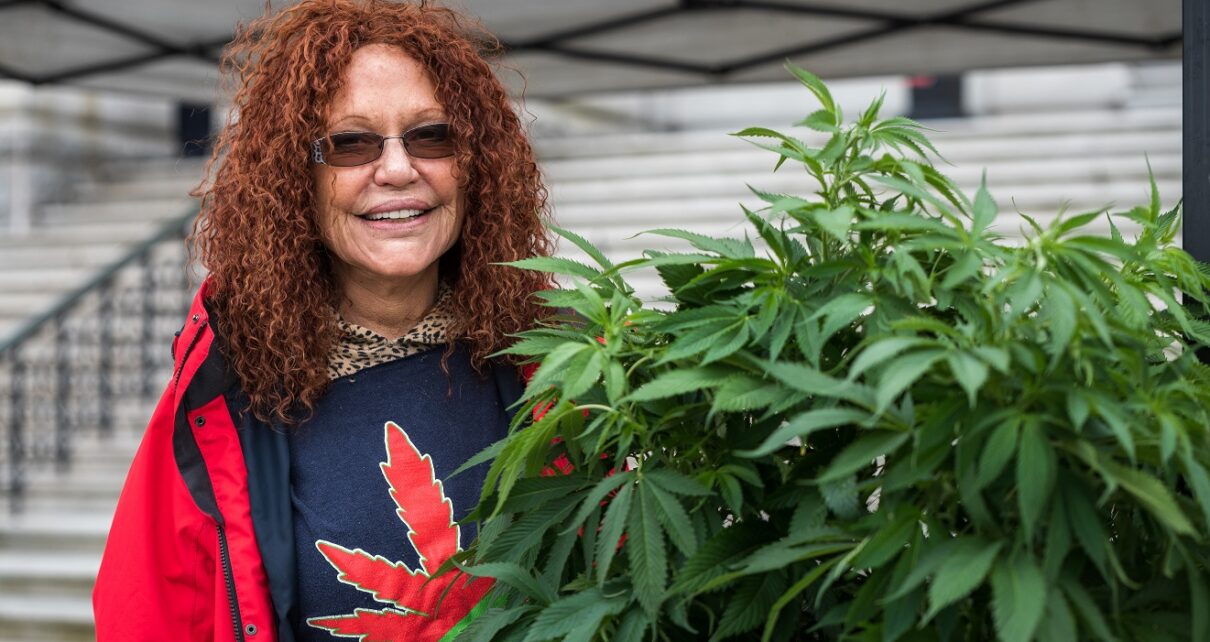Virtually every professional body that deals with medical cannabis regulations would be happy to see the whole medical cannabis system disappear. With that in mind, Health Canada has produced a public survey intended to gain feedback about the effects of legalization with a question at the end designed to justify doing just that. While there are some patient groups vocalizing their support for the Access to Cannabis for Medical Purposes Regulations (ACMPR), there is a very real possibility that without strong support in the Cannabis Review for a distinct medical cannabis program, patient gardens could be threatened and lost forever.
The question appears at the end of the survey and the language is quite clear.
5.2 Is a distinct medical access program necessary to provide individuals with reasonable access to cannabis for medical purposes, or can access needs be met through the non-medical framework?
Cannabis Act Survey 2022 – Please participate now until November 21st!

The Allard v. Canada 2016 Decision
Patients that have been fighting for their right to use this medicine will quickly cite the Allard decision as the legal backbone upon which they built their grow operation. But that decision was 8 years ago, pre-legalization, and some of the circumstances that led to that decision have significantly changed. There is every reason to think that Health Canada has prepared to try to justify once again trying to remove patient gardens, using this survey as a means to collect information that will later be used in court.
For those new to the scene, the Allard decision was handed down in 2016 when a coalition of patients took the government to court for making changes to the medical regulations that eliminated personal licenses to grow cannabis. Patients, and their caregivers, had been able to obtain licenses to grow since the Medical Marijuana Access Regulations (MMAR) came into effect in 2001 However, Health Canada changed the program in 2013 to the Marijuana for Medical Purposes Regulations (MMPR), which did not grant grow licenses to patients, instead focusing on developing a competitive market of Licenced Producers (LP)
Federal Court Judge Phelan ultimately sided with patients who were looking at losing their gardens at the beginning of the new MMPR but made it clear that the decision was not ensuring a right to grow your own medicine. Rather this decision was made considering the circumstances at the time. As the regulations change, prices go down and availability improves, the strength of this argument wanes.
[14] To the extent that affordability was advanced as a ground of s 7 violation, it has not been made out. More importantly, it is not necessary to make such a finding. Affordability can be a barrier to access, particularly where it is a choice made to expend funds on medical treatment to the detriment of other basic needs. However, this case does not turn on a right to “cheap drugs”, nor a right “to grow one’s own”, nor do the Plaintiffs seek to establish such a positive right from government.
[15] The evidence does establish that under the single source system of a Licensed Producer [LP] there is no guarantee that the necessary quality, strain and quantity will be available when needed at some acceptable level of pricing (through such mechanisms as flexible pricing or discount pricing) – due to the structure of the regulations and the characteristics of the market.
[211] It is unnecessary to debate whether the Plaintiffs’ preference of one strain versus another is medically established. There is enough anecdotal evidence that the type of strain affects the patients’ choice in treating their illnesses. Additionally, there is enough evidence that currently, the LP regime may not have an adequate supply of a patient’s dose amount in their preference of strain.
Allard v. Canda 2016
Health Canada has seriously considered the reasons for this decision but they certainly did not change their minds about wanting to stop issuing licences to grow cannabis. Rather than appeal, they reinstated the grow licenses for patients and designated caregivers, anticipating the circumstances to change enough in the developing medical cannabis market that a future attempt to remove personal grow licences could be tried later. Calling the new program the Access to Cannabis for Medical Purposes Regulations (ACMPR) these regulations were intended to monitor both commercial and personal medical cannabis production facilities.
It is interesting to note the judge in Allard also noted the weak efforts by Health Canada to seriously consider cannabis as a legitimate medicine.
[12] On the issue of the proper dosages and the alleged therapeutic effects of different strains of marihuana, there remains significant scientific debate on this topic. A clear theme running through the evidence of this trial is that despite the lengthy period for which marihuana for medical purposes has been available, there is a paucity of evidence, particularly from government, in respect of its use and effects. Marihuana is not treated as a “medicine” by statute, regulation or policy, and the information gap posed a significant problem.
Allard v. Canda 2016
Legalization did not change much of the medical program, at least not on the regulatory side of things. While the quality and price of edibles and concentrates is still obviously inferior to what is available at compassion clubs like the Victoria Cannabis Buyers Club, the prices and quality of the dried cannabis has improved dramatically since Legalization Day. With stores on almost every block in major cities, the availability of cannabis products has never been so easy in Canada.
There is no doubt that the parties who tried to shut down the personal licences in 2013 have been frustrated with the program since and will be happy to add their voices to the chorus wanting to end the ACMPR. Police association, fire departments, municipal staff, realtors, insurance companies, and Health Canada bureaucrats all consider patient gardens a nuisance and take every opportunity available to shurt it down. If enough people do not stand up and defend the medical program, there is a very real chance they could win.





